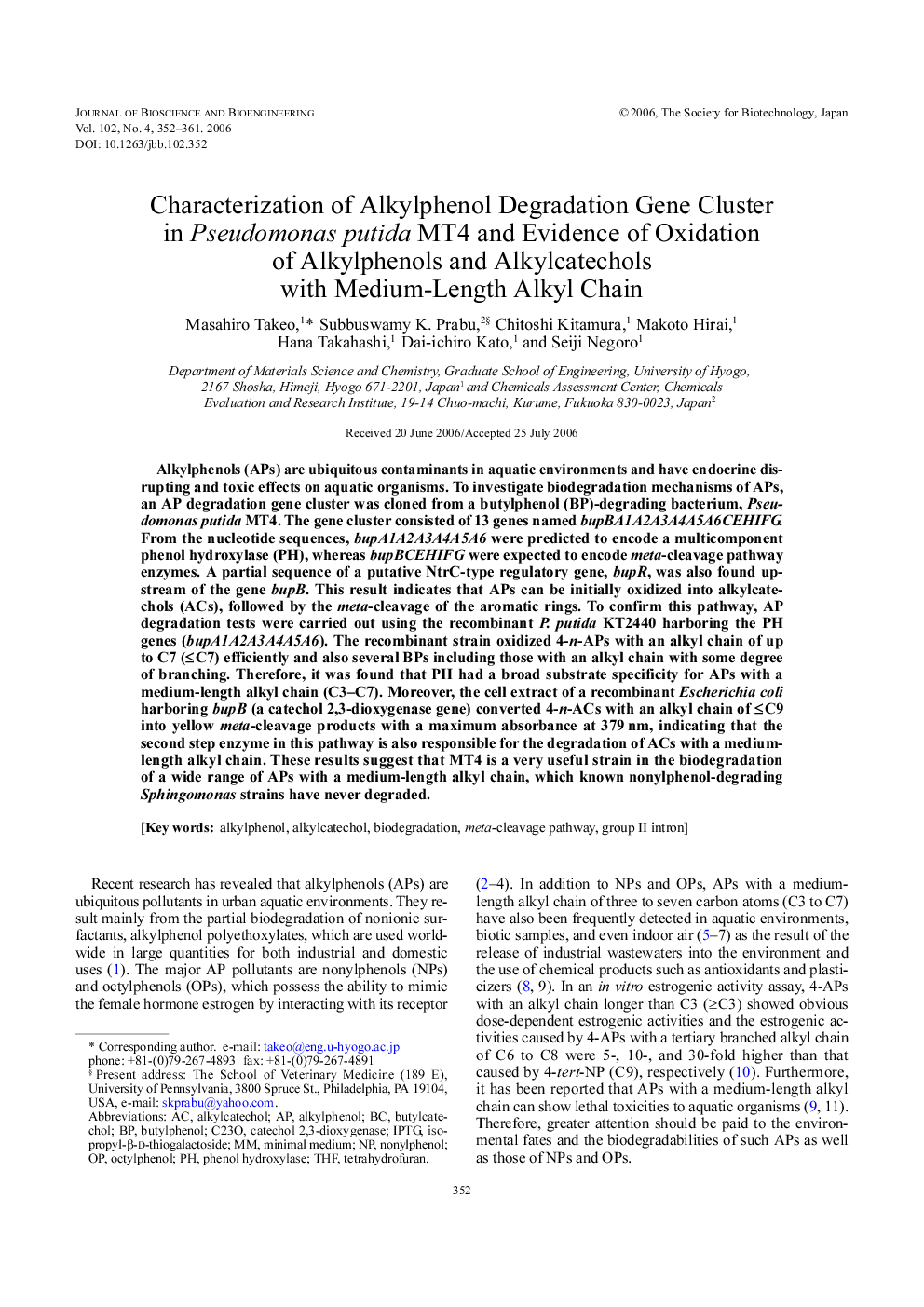| کد مقاله | کد نشریه | سال انتشار | مقاله انگلیسی | نسخه تمام متن |
|---|---|---|---|---|
| 22030 | 43249 | 2006 | 10 صفحه PDF | دانلود رایگان |

Alkylphenols (APs) are ubiquitous contaminants in aquatic environments and have endocrine disrupting and toxic effects on aquatic organisms. To investigate biodegradation mechanisms of APs, an AP degradation gene cluster was cloned from a butylphenol (BP)-degrading bacterium, Pseudomonas putida MT4. The gene cluster consisted of 13 genes named bupBA1A2A3A4A5A6CEHIFG. From the nucleotide sequences, bupA1A2A3A4A5A6 were predicted to encode a multicomponent phenol hydroxylase (PH), whereas bupBCEHIFG were expected to encode meta-cleavage pathway enzymes. A partial sequence of a putative NtrC-type regulatory gene, bupR, was also found upstream of the gene bupB. This result indicates that APs can be initially oxidized into alkylcatechols (ACs), followed by the meta-cleavage of the aromatic rings. To confirm this pathway, AP degradation tests were carried out using the recombinant P. putida KT2440 harboring the PH genes (bupA1A2A3A4A5A6). The recombinant strain oxidized 4-n-APs with an alkyl chain of up to C7 (≤C7) efficiently and also several BPs including those with an alkyl chain with some degree of branching. Therefore, it was found that PH had a broad substrate specificity for APs with a medium-length alkyl chain (C3–C7). Moreover, the cell extract of a recombinant Escherichia coli harboring bupB (a catechol 2,3-dioxygenase gene) converted 4-n-ACs with an alkyl chain of ≤C9 into yellow meta-cleavage products with a maximum absorbance at 379 nm, indicating that the second step enzyme in this pathway is also responsible for the degradation of ACs with a medium-length alkyl chain. These results suggest that MT4 is a very useful strain in the biodegradation of a wide range of APs with a medium-length alkyl chain, which known nonylphenol-degrading Sphingomonas strains have never degraded.
Journal: Journal of Bioscience and Bioengineering - Volume 102, Issue 4, October 2006, Pages 352–361